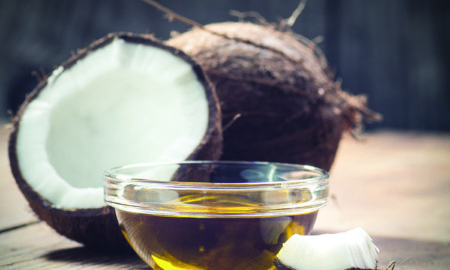

Intense training can break you down, leaving you open to getting sick. MSM can help.
By Iron Man Editors
For hardcore fitness enthusiasts, training is a cornerstone of everyday life. Although moderate exercise has been shown to enhance the immune system, overtraining ironically can lead to a weakened immune system, and consequently poor health that keeps you out of the gym and hampers the muscular gains that were the motivating force behind all that hard work. To stay consistent in the weight room, it is necessary to balance training with adequate rest and proper nutrition to perform at a high level.
Too much training can deplete critical nutrients and fatigue cellular processes, which may result in low energy levels, poor performance, plus a weakened immune system. Recent research demonstrates how overtraining can lead to an immune system that is temporarily beaten down. Suppressed immunity is a normal result of fatigue in the body, not a disease or abnormal condition. Weakened immune defense can even happen to new parents, after many late nights with a crying baby.
One 2007 study published in Medicine & Scence In Sports & Exercise looked at three groups: elite athletes, recreational athletes, and sedentary individuals. The study showed that elite athletes were twice as likely to have a respiratory incident than sedentary individuals and four times more likely than recreational athletes. In the five-month study, 32 athletically elite, 31 recreationally active, and 20 sedentary individuals participated. There were reports of 37 upper respiratory episodes in 28 subjects. This is why you often see Olympians or MMA fighters, athletes who need to peak their fitness on a specific day succumb to bugs right before their competitions.
A study published in the journal Cell Immunology and related to elite athletes suggested that heavy or chronic exercise is associated with an elevated risk of upper-respiratory illness (URI), a biomarker of decreased immunity. The temporary risk remained elevated for a one- or two-week period after a marathon or long-distance race. The conclusion was that increased and heavy exertion has a detrimental effect on the immune system, as opposed to moderate exercise that can lead to positive changes in immune function.
A strong immune system is important to maintain an active, healthy lifestyle. Suppression of this imperative system—even if temporary—cannot only lead to increased incident of infection or illness, but it can also contribute to fatigue and delayed recovery time, ultimately being the cause of missed training opportunities.
Too Much Of Good Thing
A recent study from the Journal Of Applied Physiology found immune suppression after a few types of training habits: relatively long workouts of 1.5 hours or more without refueling; high intensity, but not extremely difficult exercise sessions; or insufficient recovery periods between workouts.
Exhaustive exercise depresses the immune system in several ways. It increases the levels of stress hormones, specifically norepinephrine and cortisol, which suppress the immune system. Excessive or strenuous training will also deplete the body’s levels of glutathione, an internal antioxidant that plays a vital role in maintaining a healthy immune system. Inflammation and oxidative stress induced by exhaustive exercise can temporarily deplete normal reactions of the critical inflammation response molecules and immune cells, leading to a poor response to pathogens or damage.
Our bodies have natural defenses that neutralize free radicals, fight infections, and protect from damage, but too much training can overtake these defenses, resulting in fatigue, increased illness, and low-energy exercise sessions. However, for many competitive athletes, vigorous training is necessary for optimal performance. So what is the solution to this dilemma?

Immune Support
MSM (methylsulfonylmethane) is a well-recognized dietary ingredient for joint health, and new research has shown its benefits for expanded uses. Recent research has shown MSM to bolster glutathione levels, alleviate oxidative stress, and protect against immune depletion that comes from strenuous exercise. Packed with sulfur, MSM supports redox balance and healthy inflammatory response, an imbalance of which can interrupt normal white blood cell activity.
A recent study using a US-made form of MSM (called OptiMSM, the only MSM recognized by the FDA as “generally recognized as safe” and has also been tested by Informed Sport and found to be free of banned substances) reported immune-modulating after exhaustive exercise. Published in the Journal Of The International Society Of Sports Nutrition, the research indicated that participants taking MSM showed lower serum levels of inflammatory markers post-exercise compared to placebo. However, when exposed to the pathogenic molecule LPS, blood samples of participants reacted differently. For instance, the placebo group had a blunted immune response while the MSM group responded normally. This response indicated that MSM conserved a healthy immune system after physical stress. Another study published in The Journal Of Alternative And Complementary Medicine showed a powerful ability of MSM to improve the health of both upper-respiratory (head, eyes, nose, throat) and lower-respiratory (lungs and chest) systems.
Other Benefits
MSM also has antioxidant properties as well, although MSM does not directly scavenge free radicals like most antioxidants. Instead, it decreases the production of reactive oxygen and nitrogen species (RONS) and bolsters the body’s natural antioxidant pathways, including levels of glutathione, the body’s master antioxidant. Glutathione—a tripeptide composed of glycine, glutamic acid, and cysteine—is a valuable antioxidant essential for both innate and adaptive immunity. Glutathione levels are directly related to immune health, and depleted levels are associated with a range of diseases including increased infections. By maintaining glutathione levels, MSM dietary supplements not only help the body reduce damage from oxidative stress, but they also maintain a healthy immune system.
By supplementing with MSM, athletes can continue to train at high levels while preserving a healthy and active immune system to protect the body from a multitude of issues that can interrupt exercise routines. Although MSM is well known for its extensive joint support benefits, its impressive immune support makes it a compelling choice for athletes. Besides contributing to joint and immune function support, MSM also reduces muscle damage and soreness from strenuous activity and speeds up post-workout recovery for optimal results, making it a strong addition to the supplement regimen of any active individual, from the weekend warrior to the world-class athlete. IM


















You must be logged in to post a comment Login